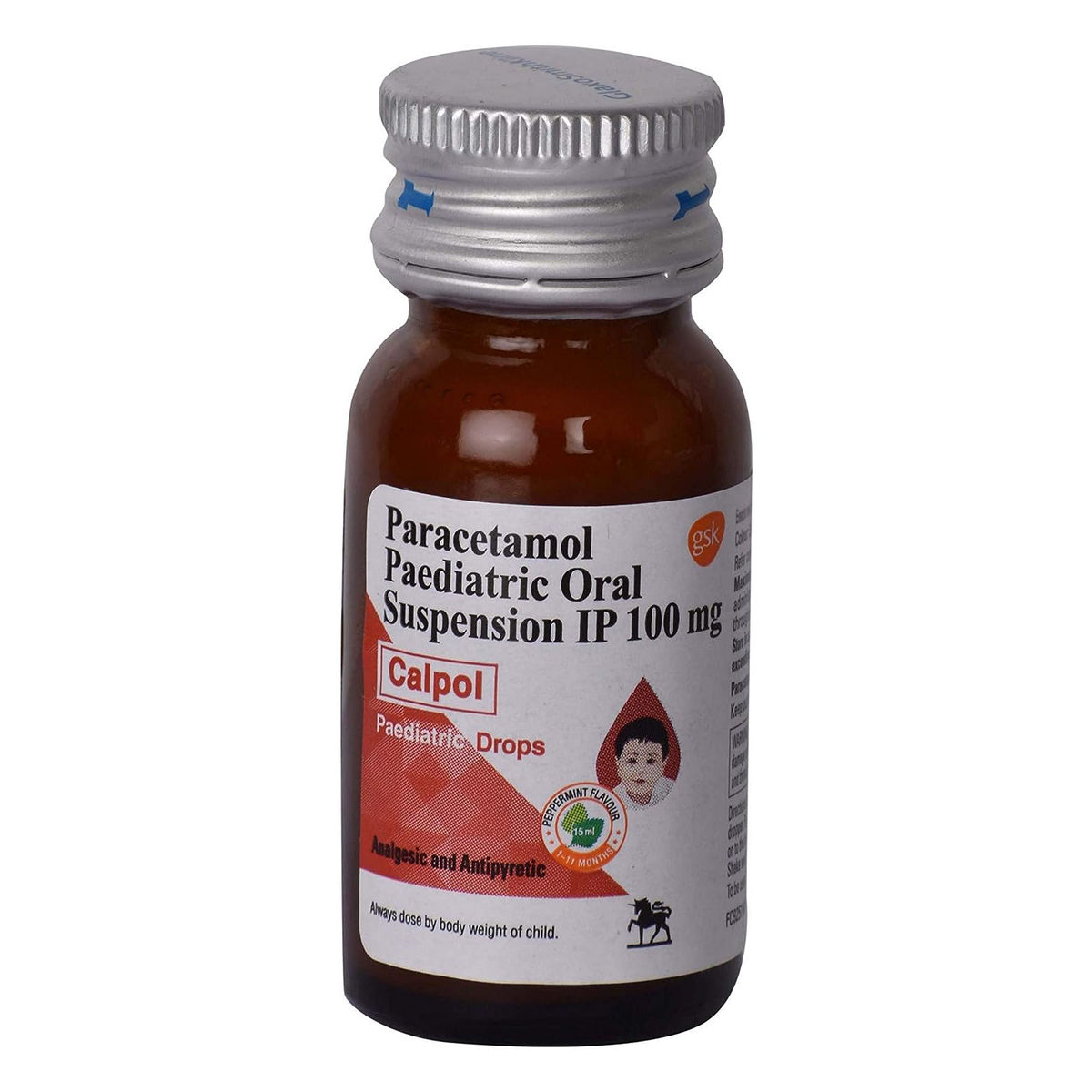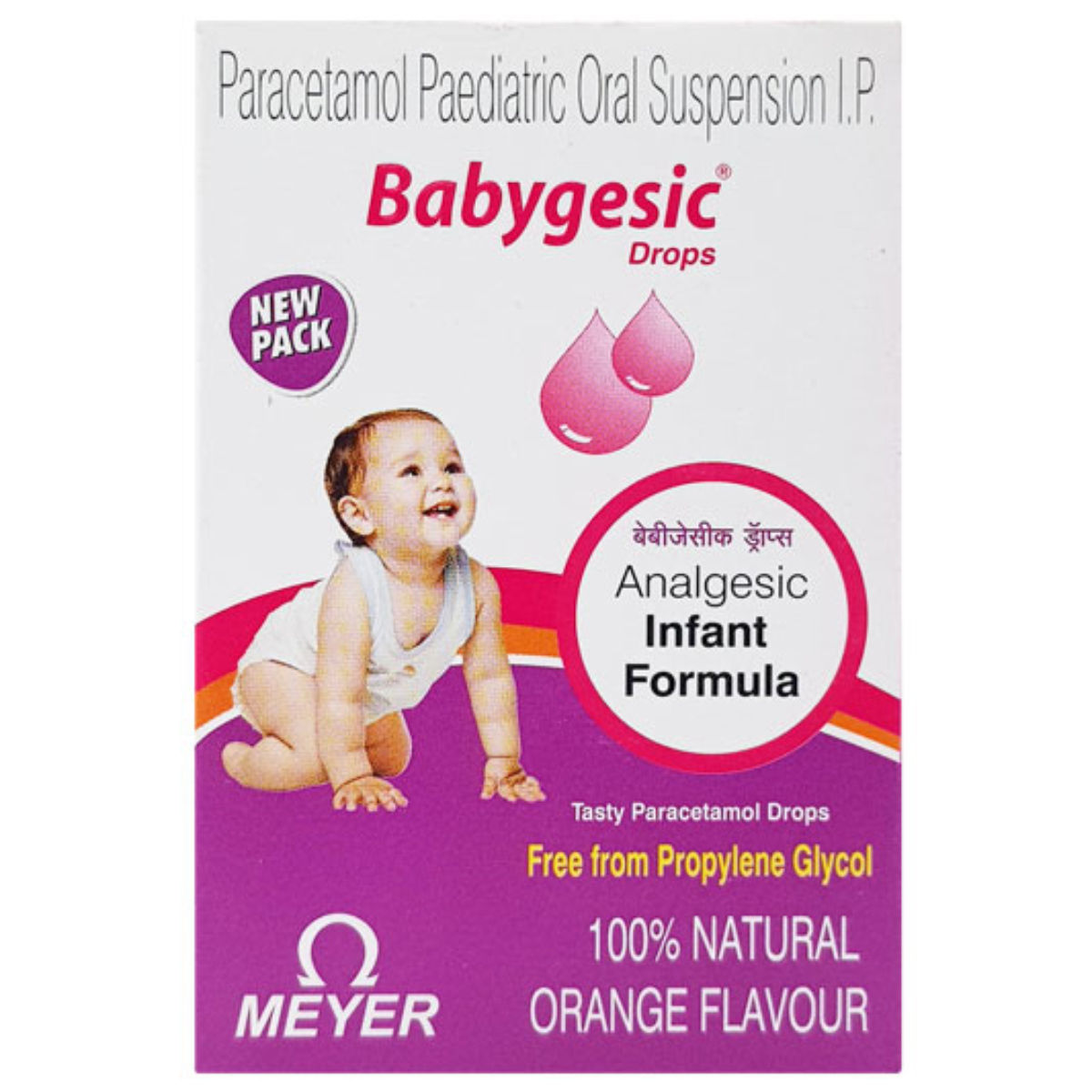Aprofen Syrup

₹27*
MRP ₹30
10% off
₹25.5*
MRP ₹30
15% CB
₹4.5 cashback(15%)
Free Delivery
With Circle membership
(Inclusive of all Taxes)
This offer price is valid on orders above ₹800. Apply coupon PHARMA10/PHARMA18 (excluding restricted items)
Know Your Delivery Time
Provide Delivery Location
Aprofen Syrup is used to reduce fever and treat mild to moderate pain. Also, it is used to relieve headaches, migraines, toothaches, period pain, back pain, muscle pain, and rheumatic pains. It contains Paracetamol, which works by inhibiting the production of certain chemical messengers in the brain known as prostaglandins. Thus, reduces pain. Also, it affects an area of the brain that regulates body temperature, known as the hypothalamic heat-regulating centre. Thereby, it reduces fever. In some cases, it may cause side effects such as nausea, stomach pain and dark-coloured urine.
Available Offers

Secure Payment

India's Most Trusted Pharmacy

Genuine Products
Composition :
Manufacturer/Marketer :
Consume Type :
Return Policy :
About Aprofen Syrup
Aprofen Syrup belongs to the group of medicines called analgesics (pain killers) and antipyretics (fever-reducing agents) used to reduce fever and treat mild to moderate pain. It is also used to relieve headaches, migraine, toothache, period pain, back pain, muscle pain, and rheumatic pain. Pain and fever are caused by the activation of pain receptors due to the release of certain natural chemicals in the body, like prostaglandin.
Aprofen Syrup works by inhibiting the production of certain chemical messengers in the brain known as prostaglandins, reducing pain. Also, Aprofen Syrup affects an area of the brain that regulates body temperature, known as the hypothalamic heat-regulating centre, reducing fever.
Take Aprofen Syrup as advised by your physician. Your doctor will recommend how often you need to take Aprofen Syrup based on your medical condition. In some cases, Aprofen Syrup may cause side effects such as nausea, stomach pain and dark-coloured urine. Most of these side effects of Aprofen Syrup do not require medical attention and gradually resolve over time. However, if the side effects persist or worsen, please consult your doctor.
Avoid taking Aprofen Syrup if allergic to it. Aprofen Syrup is not recommended for children below 6 years of age. If you are pregnant or breastfeeding, please consult a physician before using Aprofen Syrup. Avoid alcohol consumption with Aprofen Syrup as it may increase the risk of liver damage. If you have an impaired nutritional state caused by anorexia (eating disorder), malnutrition or alcohol abuse or if you are dehydrated, inform your doctor before taking Aprofen Syrup.
Uses of Aprofen Syrup
•Pain Relief: Aprofen Syrup is commonly used to treat mild to moderate pain, including headaches, toothaches, muscle aches, and menstrual cramps. It works by suppressing the brain's production of prostaglandins, which induce pain.
•Fever Reduction: Aprofen Syrup effectively reduces fever caused by infections or other conditions. It lowers the body's temperature by working on the hypothalamic heat-regulating area.
•Cold and Flu Symptom Relief: Aprofen Syrup is also used to treat cold and flu symptoms such as body pains, fever, and headaches.
•Post-Surgery Pain Management: Aprofen Syrup is used to treat post-surgery pain, especially when it is mild to moderate, as an alternative to heavier pain drugs.
•Arthritis-related Pain: Aprofen Syrup is used to treat joint pain and discomfort caused by osteoarthritis and rheumatoid arthritis, reducing pain and inflammation.
Directions for Use
Swallow it as a whole with a glass of water. It can be taken with or without food anytime. Do not crush, break or chew it.
Medicinal Benefits
Aprofen Syrup contains Paracetamol, an analgesic (pain killer) and antipyretic (reduces fever). It inhibits the production of certain chemical messengers in the brain known as prostaglandins, reducing pain. Also, Aprofen Syrup affects an area of the brain that regulates body temperature known as the hypothalamic heat-regulating centre, reducing fever.
How Aprofen Syrup Works
Storage
Side Effects of Aprofen Syrup
- Nausea
- Stomach pain
- Dark coloured urine
What if I have taken an overdose of Aprofen Syrup
Drug Warnings
Avoid taking Aprofen Syrup if allergic to it. Aprofen Syrup is not recommended for children below 6 years of age. If you are pregnant or breastfeeding, please consult a physician before using Aprofen Syrup. Avoid alcohol consumption with Aprofen Syrup as it may increase the risk of liver damage. If you have an impaired nutritional state caused by anorexia (eating disorder), wrong nutrition or alcohol abuse or if you are dehydrated, inform your doctor before taking Aprofen Syrup. Avoid taking more than recommended doses as it may increase the risk of serious liver damage.
Diet & Lifestyle Advise
- Get adequate sleep, as resting the muscles can help in reducing inflammation and swelling.
- Follow heat or cold therapy, and regularly apply a cold or hot compress on the joints for 15-20 minutes.
- Acupuncture, massage and physical therapy may also be helpful.
- Eat foods rich in antioxidants such as berries, spinach, kidney beans, dark chocolate, etc.
- Foods containing flavonoids, such as soy, berries, broccoli, grapes, and green tea, help reduce inflammation.
- Maintain a healthy weight by performing regular low-strain exercises and eating healthy food.
- Avoid smoking and alcohol consumption.
Habit Forming
Therapeutic Class
Aprofen Syrup Substitute

Calpol Pediatric Drops 15 ml
by Others
₹1.80per tabletCrocin Oral Drop, 15 ml
by Others
₹2.16per tabletP-100 Drops 15 ml
by Others
₹1.80per tabletT 98 Paediateric Drops 15 ml
by Others
₹1.95per tabletBabygesic Oral Drops 15 ml
by Others
₹1.47per tablet
Product Substitutes
Alcohol
Unsafe
You are recommended to avoid consumption of alcohol with Paracetamol as it may cause severe liver damage.
Pregnancy
Caution
Please consult a physician if you are pregnant or planning for pregnancy before using this medicine. Your physician may suggest the lowest dose of Paracetamol for the shortest duration if you are pregnant.
Breast Feeding
Caution
Paracetamol may be excreted in small amounts in breast milk. Therefore, please consult a physician before using this medicine if you are breastfeeding.
Driving
Safe
Aprofen Syrup usually does not affect your ability to drive or operate machinery.
Liver
Caution
Take Aprofen Syrup with caution, especially if you have a history of liver diseases. Your physician may adjust the dose as required.
Kidney
Caution
Take Aprofen Syrup with caution, especially if you have a history of kidney diseases. Your physician may adjust the dose as needed.
Children
Consult your doctor
Please consult a doctor. Your doctor will prescribe a suitable dose of Paracetamol based on the age, body weight and condition of your child.
FAQs
Aprofen Syrup is used to provide relief from fever and mild-to-moderate pain.
Aprofen Syrup works by inhibiting the production of certain chemical messengers in the brain known as prostaglandins. Thus reducing pain. Also, Aprofen Syrup affects an area of the brain that regulates body temperature known as the hypothalamic heat-regulating centre. Thus, it reduces fever.
You are not recommended to take Aprofen Syrup with warfarin as co-administration of these two medicines may increase the risk of bleeding more easily. However, if you are supposed to use these medicines together, you are advised to contact your physician so that the dose may be adjusted appropriately and used safely.
Aprofen Syrup may affect how certain tests work, such as blood sugar tests and uric acid tests. Therefore, if you are about to undergo a blood test or any laboratory tests, inform your physician or lab technician that you are taking Aprofen Syrup.
You are not recommended to take Aprofen Syrup with other paracetamol-containing products as it may cause paracetamol overdose.
If you take more than the suggested dose of Aprofen Syrup, it may cause an overdose and lead to serious liver damage. The symptoms of overdose include vomiting, loss of appetite, stomach pain, paleness and nausea. However, if you have overdosed or experience any of these symptoms, please consult a doctor immediately.
Aprofen Syrup can be administered up to 4-6 times a day, ensuring a minimum gap of four hours between each dose. Avoid using Aprofen Syrup for more than three consecutive days without medical advice, as excessive use may harm the liver.
You can take Aprofen Syrup with or without a meal. However, if it causes stomach problems, it is best to take it after eating. Taking it with food may minimize the likelihood of nausea or discomfort in some people.
Aprofen Syrup is generally considered safe during pregnancy and breastfeeding when taken in the recommended amounts. However, it should only be used when necessary and with your doctor’s approval to avoid any risks.
You should consult your doctor before taking Aprofen Syrup with other medications. Some medications may interact with Aprofen Syrup, affecting its effectiveness or increasing the risk of side effects. Always check for possible interactions, especially if you are using other suggested or over-the-counter medications.
You should not use Aprofen Syrup for long-term pain management without consulting your doctor. While it is effective for short-term pain relief, using it for extended periods may raise the risk of side effects, especially liver damage.
No, Aprofen Syrup is not an antibiotic. It is usually used to treat pain and fever. Antibiotics are used to treat bacterial infections, while Aprofen Syrup does not have any effect on bacteria.
You can normally drive or ride a bike after taking Aprofen Syrup because it rarely causes drowsiness or impairs your ability to focus. However, if you feel dizzy, drowsy, or uncomfortable, you should avoid driving or riding until you feel better.
Aprofen Syrup is usually not recommended to be taken with alcohol. Alcohol can raise the chance of adverse effects, such as liver damage, particularly when combined with drugs like paracetamol. Consult your doctor for advice based on your health condition.
You can usually take Aprofen Syrup with an antibiotic. Aprofen Syrup helps with pain or fever, and the antibiotic treats the infection. Check with your doctor if you are taking any other medications or have any health problems.
Your doctor will prescribe the appropriate dose of Aprofen Syrup for your child based on their age, weight, and condition. Please consult a doctor for guidance.
Aprofen Syrup usually starts working within 30-60 minutes and can provide full relief within an hour. However, this might differ depending on your condition and how your body reacts.
You can take Aprofen Syrup and ibuprofen together for short-term pain relief if advised by the doctor, as they work differently. Make sure to take them at different times to avoid side effects. It's best to use this combination for a short period and ask your doctor if you're unsure or have other health conditions.
Yes, Aprofen Syrup can cause nausea and vomiting in some people, although these side effects are not very common. If you experience persistent nausea or vomiting, consult your doctor for advice.
Aprofen Syrup is not usually used to treat stomach pain from indigestion. It mainly helps with pain relief or reducing fever. Always consult a healthcare provider for the proper treatment.
Taking too much of Aprofen Syrup can be dangerous and may lead to serious side effects, especially liver damage. Common signs of overdose include nausea, vomiting, stomach pain, loss of appetite, yellowing of the skin or eyes, sweating, and extreme tiredness or confusion. If you take more than the recommended dose of Aprofen Syrup, get medical help immediately, even if no symptoms appear.
Country of origin
Manufacturer/Marketer address
Disclaimer
Author Details
We provide you with authentic, trustworthy and relevant information
Reference
- https://www.hpra.ie/img/uploaded/swedocuments/2b04cfdb-8571-4543-a4c9-b1380e0a92c3.pdf
- https://www.sahpra.org.za/wp-content/uploads/2020/06/Von-Paracetamol_PIL_Drugcompany_MCC-Format25-June-2001.pdf
- https://www.boots.com/wcsstore/ExtendedSitesCatalogAssetStore/Attachment/Product_PatientLeaflets/10186783%20Paracetamol%20PIL%2019%2009%202018.pdf
- https://www.drugs.com/paracetamol.html
- https://www.mims.com/india/drug/info/paracetamol?type=full&mtype=generic

























